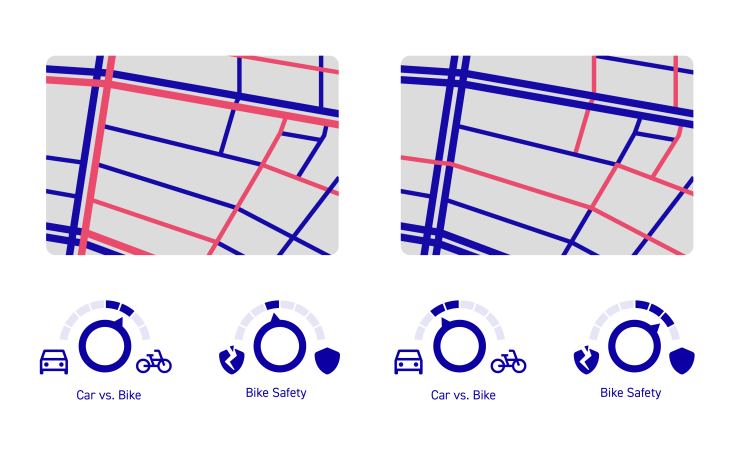Data-driven mobility behavior analysis for E-Bike City feasibility assessment
Sub project E

Description
A key component of the E-Bike City project is the design of the bike network. Subproject C develops a planning pipeline with heuristic algorithms, but bike network allocation is a combinatorial problem with multiple objectives. Mathematical optimization methods such as linear programming allow to optimize the network with respect to global objectives, such as finding the best trade-off between bike and car travel times. We develop an optimization framework that is efficient and applicable to real-world street networks, and compare it to the approaches developed in subproject C.

While the travel times are minimized in our approach, many further criteria, such as safety, accessibility, connectivity, or attractiveness, and an extensive list of corresponding objective metrics can be considered. Thus, in the further course of this project, we will structure existing bike network evaluation metrics in a formal ontology and develop multi-criteria GIS-based evaluation tools to measure the goodness of the proposed bike network.
Publications
Principal investigator
Deputy head of Institute of Cartography&Geoinformation
Inst. f. Kartografie u. Geoinform.
Stefano-Franscini-Platz 5
8093
Zürich
Switzerland

Researchers
Inst. f. Kartografie u. Geoinform.
Stefano-Franscini-Platz 5
8093
Zürich
Switzerland

Professur f. Geoinformations-Eng.
Stefano-Franscini-Platz 5
8093
Zürich
Switzerland
